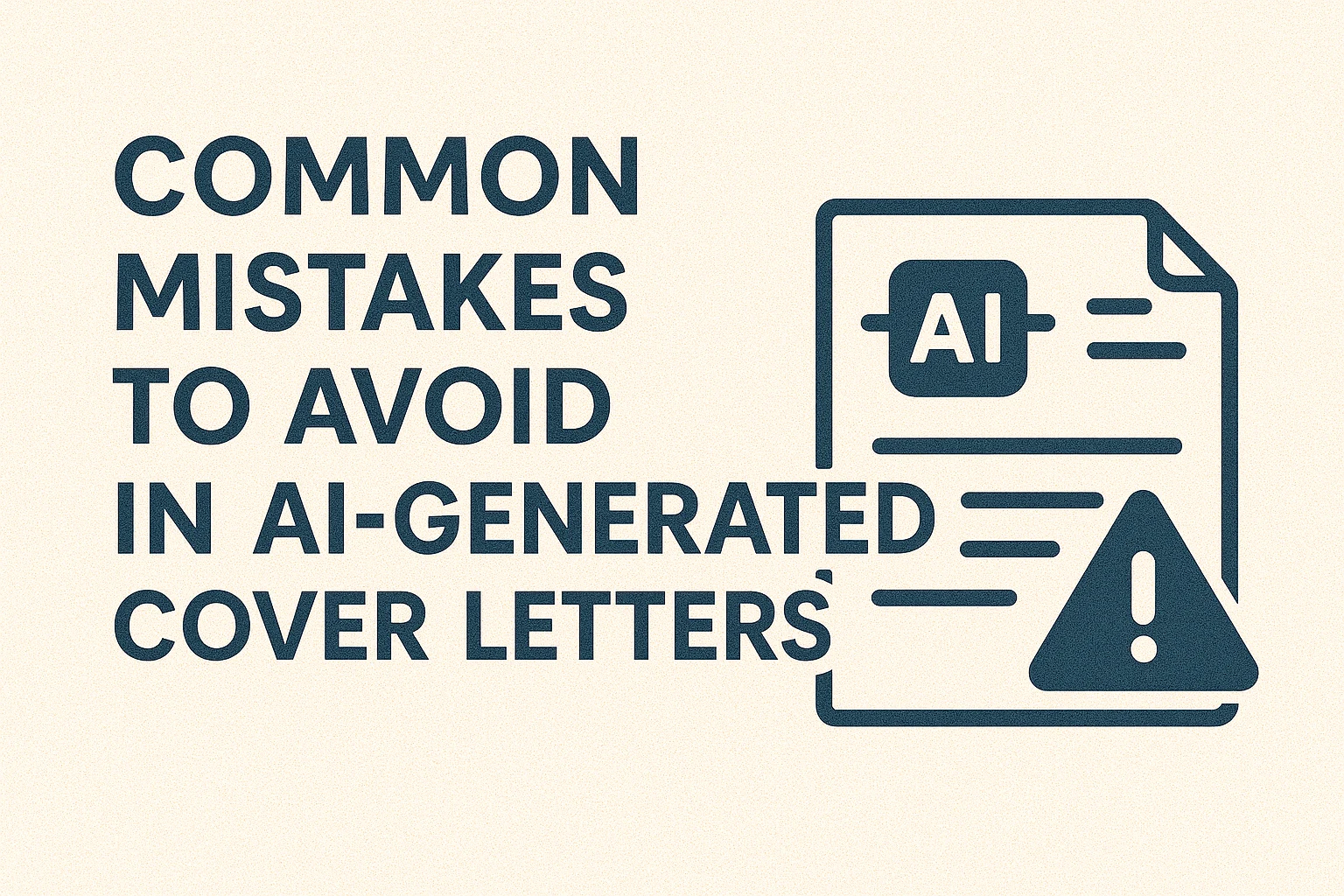
Common Mistakes to Avoid in AI-Generated Cover Letters
AI can speed up resume writing — but speed isn’t always an advantage if you don’t know what to avoid. As AI-powered tools become more common in 2025, recruiters are seeing more resumes with obvious, avoidable issues.
Before diving into common mistakes, make sure you understand the fundamentals of creating a strong resume for job applications. Once you have that foundation, here’s how to spot the most common AI-related mistakes and fix them so your resume stands out for the right reasons.
1. Using a Single Generic Resume for Every Application
Why it’s a problem
- Recruiters can tell when a resume is generic
- It makes you look unfocused or disinterested in the specific role
How to fix it
- Tailor each resume to the job description
- Highlight experience and skills most relevant to the role
- Use AI tools to create a base draft, then customize keywords and examples
2. Overloading with Keywords
Why it’s a problem
- AI might stuff keywords into every section to “optimize” for ATS
- This makes your resume sound unnatural or repetitive
How to fix it
- Use important keywords, but only where they make sense
- Keep sentences clear and easy to read
- Let your achievements prove your skills instead of just naming them
3. Listing Duties, Not Achievements
Why it’s a problem
- Recruiters care about results, not just responsibilities
- “Managed a team” is weaker than “Led a team of 5 to deliver X project 2 weeks ahead of schedule”
How to fix it
- Frame bullet points around measurable results
- Use numbers, percentages, or impact metrics where possible
4. Using Outdated Formats
Why it’s a problem
- Old resume templates may not parse correctly in applicant tracking systems
- Visual-heavy designs often get scrambled
How to fix it
- Use a clean, modern layout
- Avoid text boxes, images, and excessive columns unless you know the company’s system can handle them
5. Copy-Paste from Job Descriptions
Why it’s a problem
- Copying the exact words from the job ad feels lazy
- It doesn’t prove you’ve actually done the work
How to fix it
- Show how you’ve applied those skills in real projects
- Replace generic phrases with specific examples
Recommended Formats by Situation
| Situation | Recommended Resume Format |
|---|---|
| Applying through ATS | Simple, text-based layout |
| Creative role with direct recruiter email | Branded, design-heavy PDF |
| Career change | Hybrid/functional resume highlighting transferable skills |
| Academic or research role | CV with publications, conferences, and grants |
Final Thoughts
AI is a great resume assistant, but not a replacement for human judgment. Use it to speed up the first draft — then review, refine, and personalize.
A resume should sound like you at your most professional, not like every other candidate using the same AI tool.

